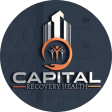Relapse can often feel like a significant setback in the journey of recovery, yet it is essential to recognize it as a common occurrence rather than a definitive failure. Understanding the triggers that lead to relapse is critical, as is establishing a robust support network to navigate these challenges. Additionally, cultivating effective coping strategies and setting realistic goals can transform the experience into an opportunity for growth. As we explore these crucial components, the question arises: how can one effectively integrate these strategies into a sustainable recovery plan?
Understanding Relapse Triggers
Recognizing relapse triggers is an essential step in maintaining long-term recovery from substance use disorders. Understanding both emotional triggers and environmental cues can empower individuals to develop effective coping strategies. Emotional triggers often stem from feelings of stress, anxiety, or sadness, which may lead individuals to seek solace in substances they once abused. Identifying these feelings is imperative, as it allows for proactive measures to address them before they escalate.
Environmental cues, such as specific locations, people, or activities associated with past substance use, can also provoke cravings and jeopardize recovery. By becoming aware of these cues, individuals can create strategies to either avoid them or manage their responses when encountering them. For example, if certain social settings trigger cravings, it may be beneficial to establish boundaries or seek alternative environments that foster a healthier lifestyle. Ultimately, understanding these relapse triggers is not just about avoiding pitfalls; it’s about building a robust foundation for recovery. For further insight into these processes, this article offers an in-depth discussion on the psychological aspects of dealing with relapse.
Building a Support Network
Addressing the challenges of relapse triggers is only part of the journey toward sustained recovery; building a strong support network is equally essential. A well-rounded support system can provide the emotional connection necessary for individuals maneuvering the complexities of addiction recovery. Engaging with peers who have shared similar experiences fosters an environment of understanding and validation. Peer support not only reduces feelings of isolation but also encourages accountability, essential components in maintaining sobriety. In addition to peer relationships, cultivating connections with family and friends who are supportive can greatly enhance your recovery journey.
These individuals can offer encouragement, provide a listening ear, and help you celebrate your successes, no matter how small. It’s important to communicate your needs and boundaries to those in your support network, ensuring they understand how best to assist you. Participating in support groups, whether in-person or online, can be an invaluable resource. These groups allow for shared experiences and collective wisdom, offering a sense of community that can be a powerful antidote to the loneliness often associated with relapse. A variety of holistic programs, such as those offered by CARE, provide restorative experiences which can facilitate self-reconnection, offering additional resources for support and healing. Ultimately, a robust support network is a cornerstone of recovery, providing the strength and resilience needed to maneuver challenges ahead.
Developing Coping Strategies
Coping strategies serve as vital tools in steering through the tumultuous path of recovery from substance use disorders. Developing effective methods to handle stress and cravings can greatly bolster your resilience against relapse. Mindfulness techniques, such as meditation and deep breathing exercises, can help you stay grounded in the present moment, reducing anxiety and enhancing self-awareness. By practicing mindfulness, you can learn to observe your thoughts and feelings without judgment. Our treatment modalities incorporate these techniques to help manage recovery challenges effectively.
In addition to mindfulness, effective stress management is essential for maintaining sobriety. Identifying stressors in your life and finding constructive ways to address them can prevent overwhelming feelings that may lead to relapse. Engaging in physical activity, pursuing hobbies, and connecting with supportive individuals can serve as healthy outlets for stress relief. It’s important to remember that developing these coping strategies takes time and practice. Be patient with yourself as you experiment with different techniques to find what works best for you.
Setting Realistic Goals
Setting realistic goals is an essential component of the recovery journey, as it provides a clear roadmap for individuals seeking to overcome substance use disorders. Establishing achievable objectives helps to foster a sense of accomplishment and motivation, essential for maintaining momentum in recovery. Utilizing self-reflection techniques can be instrumental in this process. By taking the time to evaluate personal strengths, challenges, and past experiences, individuals can create more informed and tailored goals.
This not only enhances self-awareness but also allows for a better understanding of what is realistically attainable. Incremental progress should be the focus, as recovery is a gradual process that often involves setbacks. Instead of aiming for immediate sobriety, consider setting smaller milestones, such as reducing substance use or attending support meetings regularly. These incremental goals can lead to significant changes over time, reinforcing positive habits and building resilience.

Final Thoughts
Relapse, while challenging, is a common aspect of the recovery journey. Acknowledging triggers, fostering a supportive network, and employing effective coping mechanisms are essential steps in maneuvering this difficult experience. By setting realistic goals, individuals can cultivate resilience and maintain motivation. Embracing the understanding that setbacks do not equate to failure can empower continued progress. Commitment to recovery remains paramount, reinforcing the belief that a meaningful and fulfilling life is attainable despite obstacles encountered along the way. Explore our programs to see how we can assist you in achieving a sustainable recovery.
At Capital Recovery Health, we’re dedicated to helping you overcome the challenges of substance use and build a foundation for lasting strength and renewal. Our experienced team creates personalized, evidence-based treatment plans tailored to your unique recovery journey. Get the compassionate support you deserve by contacting us. Stay connected with us on Facebook for valuable insights, resources, and inspiring stories of hope.
Frequently Asked Questions
What Is the Difference Between a Lapse and a Relapse?
A lapse is a temporary return to substance use after a period of abstinence, often triggered by stress, social situations, or emotional challenges. In contrast, a relapse signifies a more profound re-engagement with substance use, often characterized by a loss of previously attained recovery progress. Understanding these distinctions is critical, as recognizing relapse triggers can empower individuals to develop strategies for prevention and enhance their commitment to recovery, fostering resilience in the face of challenges.
How Can I Forgive Myself After a Relapse?
Forgiving oneself after a relapse is a vital step toward emotional healing. Engaging in self-compassion practices can facilitate this process. Start by acknowledging your feelings without judgment, recognizing that setbacks are part of recovery. Reflect on the triggers that led to the relapse, allowing for personal growth. Surround yourself with supportive individuals who understand your journey. Remember, forgiveness is not about condoning the behavior; it’s about embracing your humanity and fostering resilience.
Should I Inform My Support Network After Relapsing?
Informing your support network after a relapse is vital for effective recovery. Support communication fosters understanding and accountability, while honesty about your struggles can strengthen your relationships. Sharing your experiences allows your network to provide the necessary encouragement and guidance, helping you navigate this challenging time. Remember, vulnerability is a strength, and seeking assistance can greatly enhance your journey towards sobriety. Embrace the support available to you without fear of judgment.
Is Relapse Common During Recovery?
Relapse is a common occurrence during the recovery phases, with relapse statistics indicating that many individuals experience setbacks on their journey. This phenomenon can stem from various factors, including stress and environmental triggers. Understanding that relapse does not equate to failure is essential. It is a part of the recovery process for many and can provide valuable lessons when approached with the right mindset and support from a strong network.
What Resources Are Available for Immediate Support?
For individuals seeking immediate support, various resources are available. Crisis hotlines provide confidential assistance and guidance 24/7. Support groups, both in-person and online forums, foster community and shared experiences. Therapy options, including cognitive-behavioral therapy, can address underlying issues. Additionally, self-help books offer valuable insights and coping strategies that empower individuals on their journey. Utilizing these resources can greatly enhance recovery efforts and provide the necessary support during challenging times.

